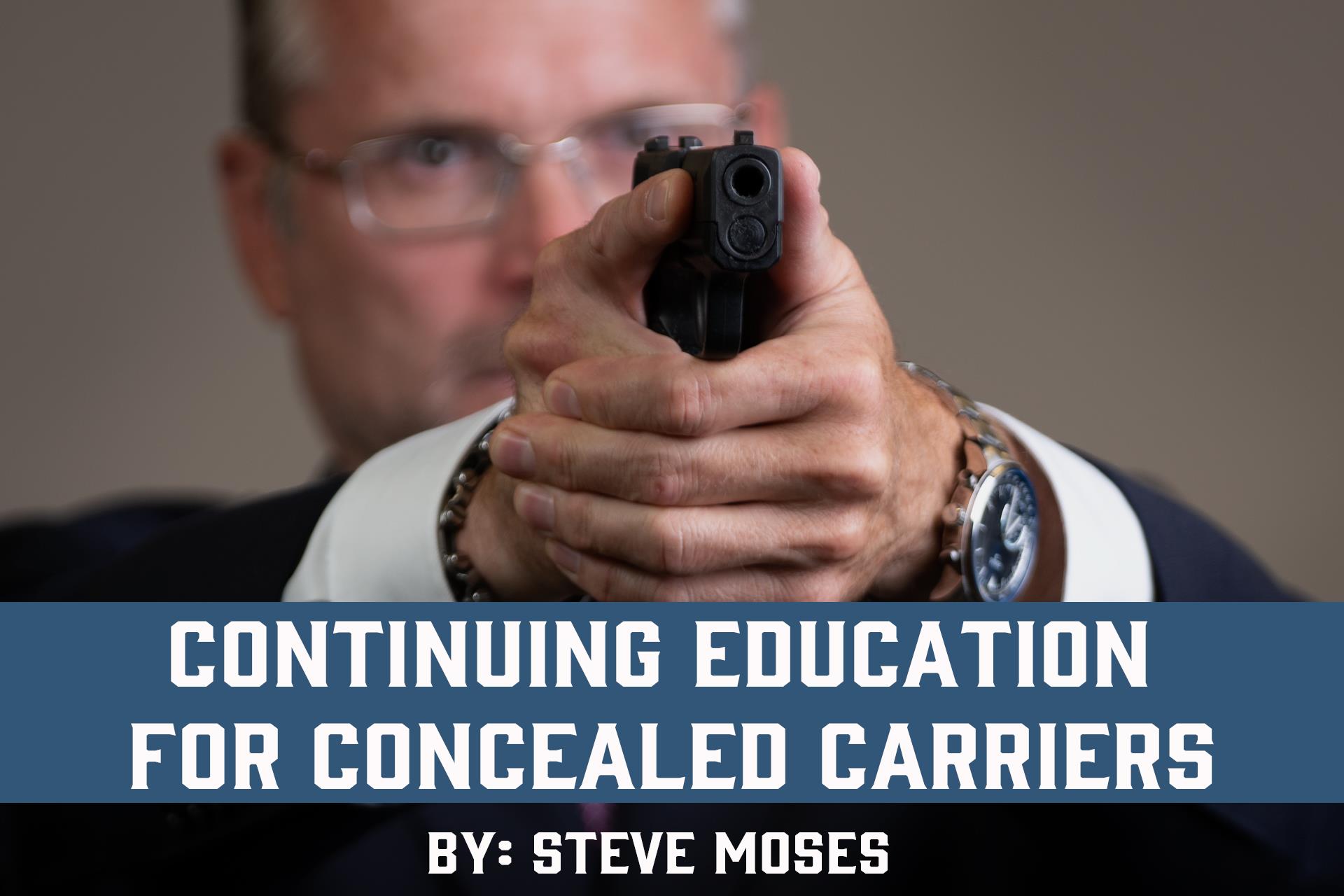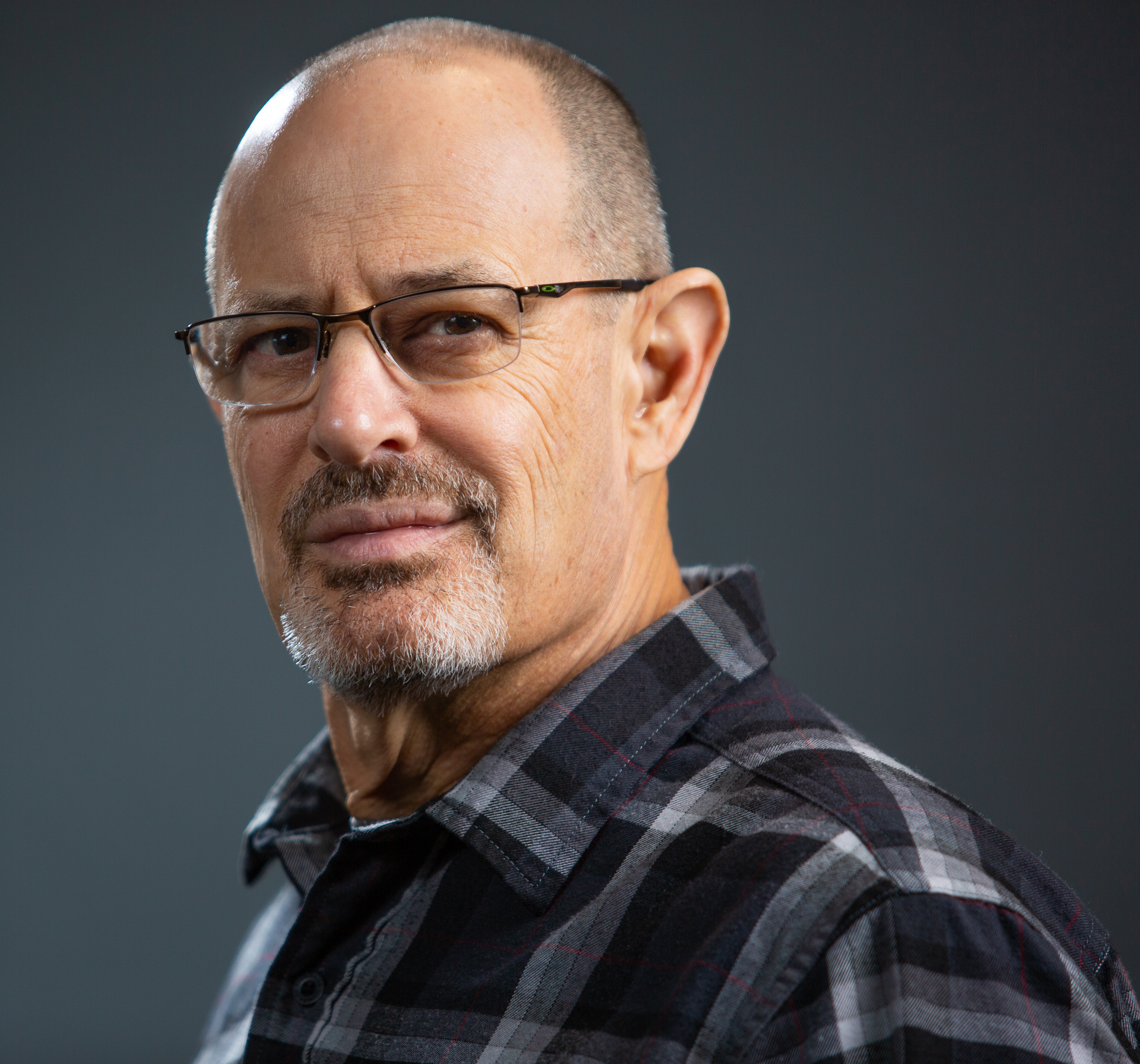
Posted on October 19, 2020
CONTINUING EDUCATION FOR CONCEALED CARRIERS
CONTINUING EDUCATION FOR CONCEALED CARRIERS
I think concealed carriers should continue to train and learn throughout their adult lives. This can be important for several reasons. First, we may need to train under multiple instructors in order to best learn how to perform a particular technique (like learning how to hit the target or developing a quick draw). We may try without success to develop a particular skill before the light bulb comes on and we get it. Developing and maintaining a satisfactory level of performance may involve taking classes from multiple instructors in order to see how other trainers attack the same subject. It is often simply worth it to take one or two classes a year from different trainers just to do nothing more than get some quality trigger time under the watchful eye of a person who can spot and correct small defects in technique or tactics.
I make sacrifices in order to take these classes in terms of time and money. Like most everyone else, I am not independently wealthy and in order to attend these classes I have to go without things that I want to be able to do or purchase. I was employed in the oil and gas industry for four decades, and up until then I had to take vacation time in order to attend classes that were not within 50 miles of my home. I train with several other friends who are self-employed, which means that they have to also forego income on occasions.
Was it worth it? I would not possess the skillsets and knowledge that I do today had I not made the decision (and followed through) to train under others on a regular basis.
Set out below are some reasons that I have found continuing education to be so valuable:
- My number one priority in continuing education is learning and improving my own skills. Thanks to instructors like Robert Duhon, Cecil Burch, Craig Douglas, Tim Bulot, and Jerry Wetzel I have developed defensive skills in areas that I would have never obtained otherwise. Instructors like Kyle Defoor and Spencer Keepers have corrected small errors in my grip and draw speed that have paid huge dividends. Scott Jedlinski taught me how to develop a repeatable draw that allowed me to shoot a red dot-sighted pistol with a high level of speed and precision. William Aprill expanded my understanding on why criminal mentality provided a clearer picture of how violent offenders view the world and why that matters to concealed carriers. I could drone on and on about instructors like Claude Werner and John Holschen who helped me develop improved plans that would make me better prepared to deal with situations and events where the consequences of failure can be severe.
- As a long-time martial arts instructor and defensive firearms instructor with a degree in Speech Communications and forty years of experience negotiating relatively complex oil and gas transactions and then preparing lengthy contracts where millions of dollars were involved (sorry, I know that sounds narcissistic), I am an enormous believer in the old saying “words have meaning”. In other words, my ability to understand what I am supposed to do and how to do it is enhanced when I know exactly what to do and when as opposed to a general feeling or impression. I am unable to remember the number of times that I turned to my business partner, Allan McBee, and said “so that’s what we are supposed to do” during a class when experiencing a training epiphany just because an instructor explained how to perform a skill or execute a tactic in words that were articulate, easy to comprehend and remember, and completely void of ambiguity.
- I get to see where my skills are lacking, address them, and correct them in the course, ingrain them by virtue of proper practice after the class, or even take up competitive action pistol shooting or Brazilian Jiu Jitsu after the course. I possess a brown belt in Relson Gracie Jiu Jitsu today because Bryce Ratchford kicked my butt in the back seat of a car in a Craig Douglas Vehicle Combat Shooting and Tactics class years ago.
- I pay careful attention to the drills instructors use. As a result, I will practice one or more each time I go to the range to practice. I have also taken drills that I have seen other instructors use and revised them to make them more applicable to a specific skillset that I wanted to work on.
The concealed carrier who is serious on being as difficult to be both killed and then prosecuted as possible is one that never stops learning. The most cost and time-effective way that this can be accomplished in my opinion is by taking a few classes every year from talented instructors. There are a number of instructors that can often be found on the local levels in many instances. Several of the better classes that I have attended were taught by instructors that were fairly unknown but definitely had the chops. Does this mean that I occasionally attend a class that is not that good? The answer is yes. Regardless, I am on the range and can use that class as an opportunity to not only knock out some good repetitions but more than likely meet some other like-minded men and women.
One caveat: In my opinion, the better instructors will make available for public viewing their backgrounds and what it is that qualifies them to teach a particular subject. Some of the best instruction I have received is from persons with no law enforcement, military, or competitive shooting experience. Some of the worst I have received is from instructors who are extremely skilled but lack any ability to convey knowledge to others.
Attorney Andrew Branca urges concealed carriers to be “hard to kill, hard to convict”. That is definitely a saying that I wish that I had thought of it first.
 |
Steve MosesSteve Moses has been a defensive firearms trainer for over 26 years and is a licensed Texas Personal Protection Officer with 7 years of experience performing as shift lead on a church security detail for a D/FW area metro-church. Steve is a co-owner and Director of Training for Palisade Training Group, LLC based in Dallas, Texas. Moses is a retired deputy constable and spent over 10 years on a multi-precinct Special Response Team. He owns multiple instructor certifications, including Rangemaster Advanced Handgun Instructor and Defensive Shotgun Instructor, Red Zone Knife Defense Instructor and Adaptive Striking Foundations Instructor, Modern Samurai Project Red Dot Sight Instructor, and State of Texas Personal Protection Officer Instructor. Steve holds a BJJ Brown Belt in Relson Gracie Jiu Jitsu. He is a content contributor for CCW Safe and writes weekly articles on various subjects of interest to concealed carriers. Moses shoots competitively and holds an IDPA Expert rating. Steve is an annual presenter at the Rangemaster Tactical Conference. |